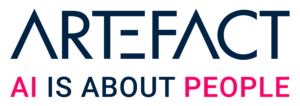In just two months, ChatGPT has become the world’s most downloaded product. What sets this solution apart from its predecessors is its ultra-simple interface based on conversation-like “prompts”. This intuitive use, coupled with AI’s ability to process vast amounts of data and deliver fast, accurate results, multiplies the speed of execution and decision-making for professionals tenfold. AI frees people from repetitive, time-consuming tasks and lets them concentrate on higher value-added activities. Humans will not be replaced, they will be “augmented”, thanks to generative AI.
According to recent studies, 78% of employees believe that generative AI has had a positive impact on their productivity. For tasks linked to knowledge acquisition, professionals would gain 37% in execution speed and developers 55% on coding tasks. Six months ago, a veritable race for innovation was launched between the players in generative AI. To reap the full benefits and remain competitive, companies need to move fast, without losing sight of the remaining challenges.
Transparency and trust, the great challenges of generative AI
The performance of generative AI solutions is undeniable, but they do have limitations we must be aware of to minimize their impact. They are of four main types:
Artefact’s own methodology for reducing risk and optimizing business transformation
The breathtaking, continuous progress in generative AI requires companies to act quickly, but with discernment. That’s why we recommend that our customers adopt a progressive operating mode and implement a solid framework around their transformation project.
To get the whole company on board, the results of an initial POC are often decisive. To minimize the risk of incidents, it is preferable to carry out this first test on an internal use case, or through human mediation (e.g.: a human agent uses AI information to better serve the customer). At the same time, we need to identify potential applications throughout the company, based on business needs and all the data we hold.
At the same time, a roadmap must be defined for:
Trust does not exclude control
Although we are convinced that generative AI has and will have a positive impact on the operational performance of companies and the productivity of their employees, it is important to launch with prudence. Progress must be continuous and controlled, and humans must retain control of the models, before they can take full advantage of the unlimited use cases offered by these new, ultra-high-performance technologies.

 BLOG
BLOG



